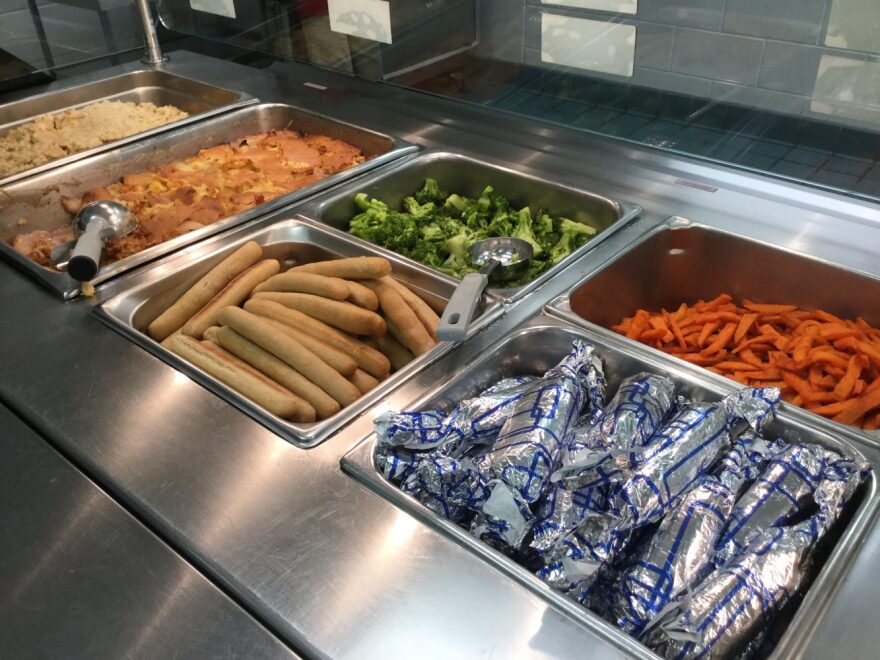With stricter federal school lunch nutrition guidelines falling into place, local schools are taking steps toward implementing programs to encourage healthy eating behaviors among students.
Alachua County Food and Nutrition Services, which served 9,000 lunches every day during the 2015-16 school year, is dedicated to teaching students to be enthusiastic about consuming more nutritious meals.
The goal is to increase participation in the school lunch program by providing options the students will enjoy, said Caron Rowe, Alachua County Food and Nutrition Services food service specialist.
During lunch, students are presented with five components of a healthy lunch as directed by the Dietary Guidelines for Americans and are able to choose three.
“They don’t have to take something they know they’re not going to like and are probably going to throw away,” Rowe said.
Additional recent improvements to the school lunch program include converting to low-fat and whole grain foods and providing more fruit and vegetable options so that students can make healthier choices.
Twenty-four elementary schools in Alachua County currently participate in the farm-to-school program, which brings new, fresh vegetables to students’ classrooms each month.
In eight of the Title I elementary schools, where over half of the students qualify for free and reduced-price lunch, fresh fruits and vegetables are brought to the students’ classrooms five days a week.
Teachers and faculty are encouraged to participate in the programs.
“The more the adults are modeling good eating behavior, the more the students will follow suit,” Rowe said.
Robert Clemons, the Levy County School Board finance director, said there is similar enthusiasm toward teaching students about healthy meals in his district.
Clemons reviews the revenue and receipts for the county, including those associated with the school lunch program.
The budget includes more than just the cost of food. Additional costs come from training and nutrition classes for students and faculty, Clemons said. The training is important to increase students’ enthusiasm for the school lunch program.
“You need to train the kids correct nutrition,” Clemons said. “If you just wave the wand and change it all at once, children will opt out.”
A recent study by UF/IFAS assistant professor of food and resource economics Jaclyn Kropp — along with economists at Georgia State University, Clemson University and the U.S. Food and Drug Administration— found that elementary students who participate in the national school lunch program at their school consume healthier meals than those who don’t.
Janet Peckham, an economist at the Food and Drug Administration and lead author of the study, said demographics play a large part in the selection of meals.
While students may prefer a less healthy option for lunch, those from low socioeconomic backgrounds rely heavily on the school lunch program. Students who can afford to bring lunch from home or select another option usually do, which often leads to a less healthy lunch.
Students who receive free and reduced-price lunch are among the same population that is prone to obesity and other health risks, Peckham said.
Levy County schools, as well as 31 schools in Alachua County, have instituted a Community Eligibility Provision program. All students in these schools are served free breakfast and lunch, regardless of individual socioeconomic qualifications.
Peckham believes the key to increasing school lunch participation is teaching students what eating healthy means.
“It’s not about being thin versus fat,” Peckham said. “It’s about being healthy.”
Clemons has seen students show excitement in regards to their school meals, now that they’re learning correct nutrition and have access to healthier options.
“Man, when they get off the bus, they almost run into the lunchroom,” Clemons said. “That’s been one of our greater successes.”

